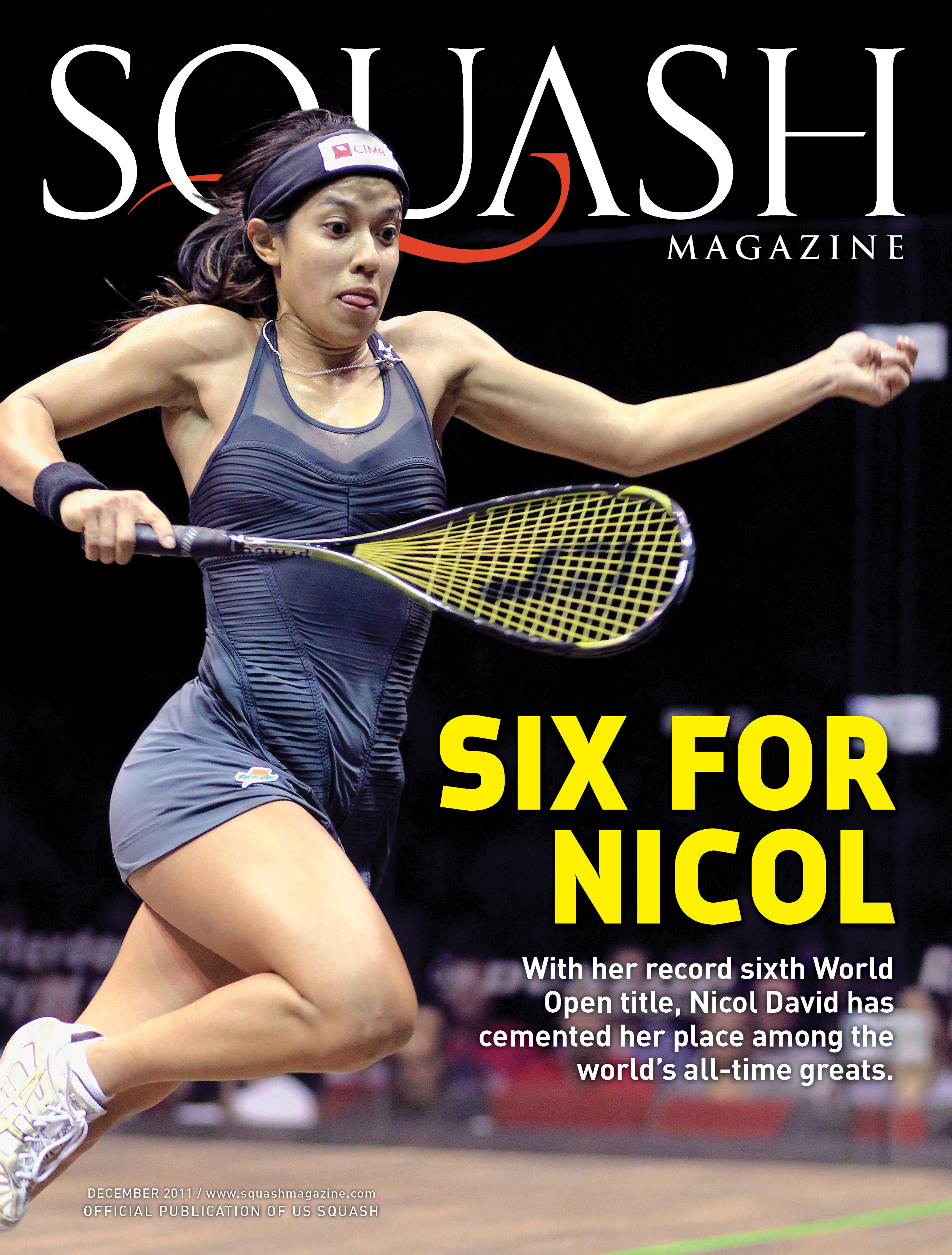By Jay D. Prince
One of the things I look forward to most about playing squash is the annual beginning of another league season. Week after week, we are afforded the opportunity to compete in a fun atmosphere, typically followed by the obligatory post-match dinner and beverage at a local watering hole.
In addition to playing our matches, all of us are thrown into the fire with refereeing responsibilities. I’ll be honest—I don’t particularly enjoy refereeing. It’s stressful, often met with disagreement and, frankly, I can’t cheer on my teammate while being “forced” into a position of neutrality. That being said, I take it seriously and do my best.
But that phrase, “doing my best” often times infuriates me too. Huh?
It goes something like this: a match is played and let/stroke decisions are made. Disagreement in the peanut gallery, and on the court, with a referee’s decision are commonplace. We all know that. And yes, I assume that whoever is refereeing is “doing their best.” But after a match is over, there is an opportunity to really dissect what has happened during a match and the decisions that were made; opportunities to become better referees.
So when a referee is “doing his/her best” during a match, I’m okay with that. When they repeat that after a match, I personally think that’s a cop-out. I’m not talking about little idiosyncracies that will always be up for debate. We all know that sometimes the difference between a let and a stroke…or even a no let, can be miniscule and truly up for debate. No, what I’m talking about are the absolute, deer in the headlights, stroke decisions that are warranted when the outgoing striker is directly in front of his/her opponent— who stops rather than drilling a new hole in the backside of the poorly placed soul who deserves to lose the point. But who is then given a reprieve with the “Let” decision by the referee. One time in a match, I might be able to overlook. But happening repeatedly, it’s shameful. Honestly? It’s cheating. And it’s also extremely confusing to the players on court, especially to the player who deserved a stroke but didn’t get it. Think about what happens after a player is repeatedly given a “Let” decision (in the same scenario outlined above) rather than a “Stroke”—that player will stop asking for lets and begin playing shots that they shouldn’t be playing or, worse, start hitting their opponent.
The “doing my best” part that I am taking issue with is when that statement is repeated after the match when other people try—vainly—to help that referee understand why the decision(s) of “Let” instead of “Stroke” was (were) wrong. To say, “I’m doing my best,” despite having people trying to help them gain a better understanding and become better referees is simply unacceptable in my view. The only acceptable form of “Do my best” at that point would be if one says, “Thank you, I’ll do my best…” to apply this new knowledge next time.
And this is precisely the point. Like most of you, I’d much rather play than referee. But even as players, we are usually expected to be our own referees because most of our matches are played in anonymity with our friends. By taking every opportunity we are presented with to improve our refereeing skills, we are simultaneously taking every opportunity to improve the game of squash.
The onus is on each of us to “do the best we can” when we play and when we referee. And part of “doing our best” is making the effort to become better at playing and refereeing. So when you play your league matches, by all means do your best to referee well, but take it a step further and sharpen your refereeing skills while you’re at it. I know I will.




